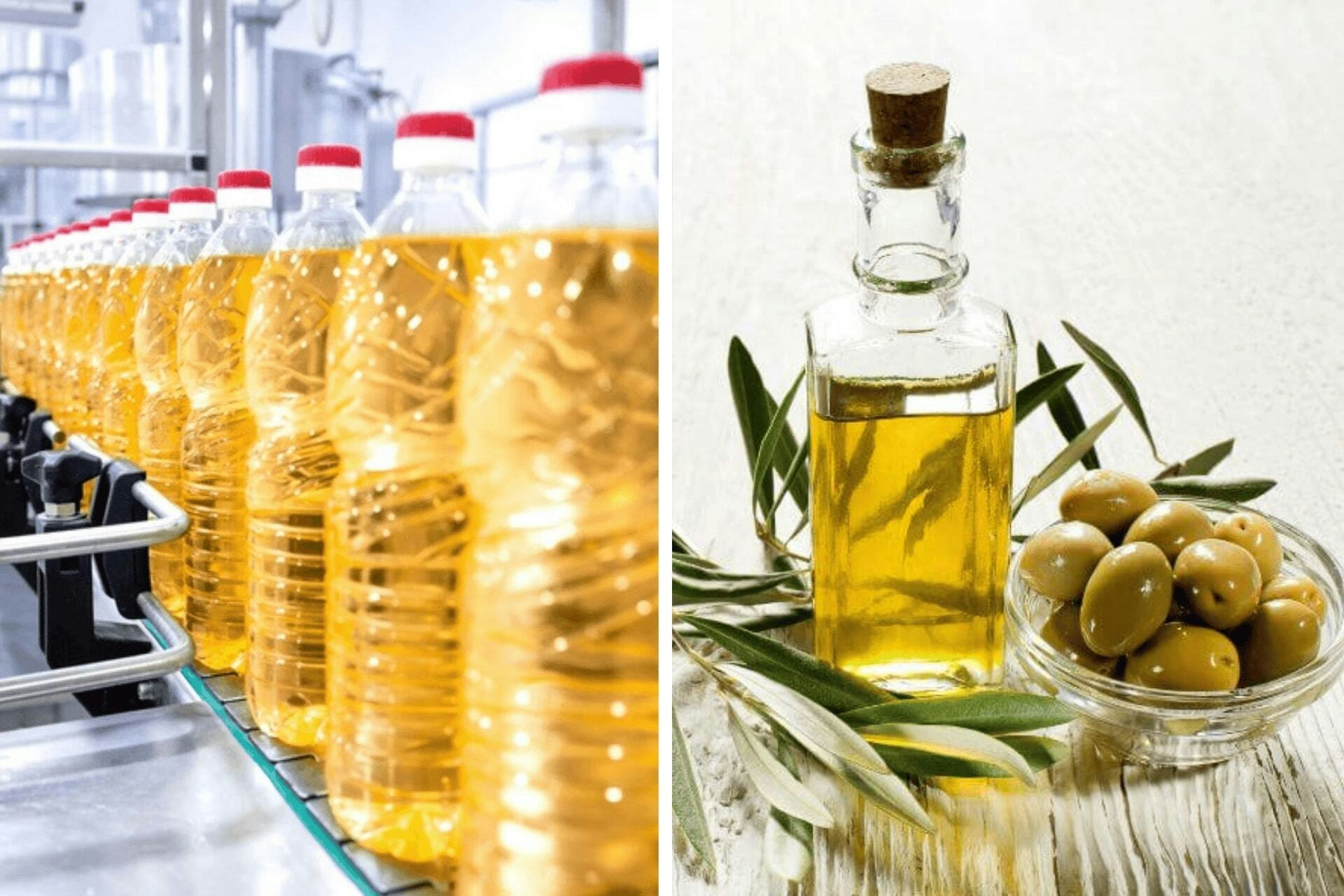Cooking oils are a big part of our daily meals, from frying eggs to making salad dressings. What actually happens when oils are exposed to air, heat, and light is that they begin to oxidize. This means they start to break down, and as a result, they lose some of their freshness, flavor, and health benefits.
In this article, we’ll learn what cooking oil oxidation is, what causes it, and why it matters for both taste and health. We’ll also look at which oils hold up better over time and in cooking, so you can make smarter choices in your kitchen.
Oxidative Stability in Cooking Oils
Oxidative stability is the term used to describe how well a cooking oil can resist damage when it comes into contact with air, heat, or light. Oils that have high oxidative stability stay fresh for longer periods of time, which makes them safer and healthier to use.
On the other hand, oils with low stability break down more quickly, leading to changes in taste, smell, and nutrition.
Several factors affect how stable an oil is. One important factor is the presence of antioxidants. Antioxidants are natural compounds that protect the oil from breaking down. Vitamin E, for example, acts like a shield that slows down oxidation, helping the oil last longer ❶.
Another factor is the fatty acid makeup of the oil. Oils are made of different types of fat, and some fats are more stable than others. Oils high in monounsaturated fats tend to resist oxidation better, while oils with a lot of polyunsaturated fats can spoil more easily because these fats react more quickly with oxygen ❷.
Finally, the way an oil is processed, also called refining, makes a difference. Refined oils go through steps that remove parts of the oil that spoil quickly, which helps them stay fresh longer. Unrefined oils, which keep more of their natural compounds, may offer more flavor but often break down faster.
What is Cooking Oil Oxidation?
Cooking oil oxidation is the process that happens when oil reacts with oxygen. Over time, this reaction changes the oil’s structure, causing it to lose its natural quality. When oil oxidizes, it may develop an unpleasant smell, taste bitter, or even produce harmful compounds that are not beneficial for health.
A simple example is leaving a bottle of oil open on the counter. If it sits in the sun or near heat, the oil may start to smell “off” or rancid. This is a sign that oxidation has taken place. The same thing can happen even faster when oil is exposed to high cooking temperatures.
This is why choosing the right oil for the type of cooking you’re doing is so important.
Factors That Contribute to Cooking Oil Oxidation
Several things can speed up how quickly cooking oils oxidize. One of the biggest factors is heat. Oils that are used for frying or roasting are exposed to very high temperatures, which makes them break down faster. Research shows that heating oils past their smoke point not only causes them to lose flavor but also creates harmful byproducts ❸.
Another key factor is the fatty acid composition of the oil. Oils that are high in polyunsaturated fats, like soybean or corn oil, tend to oxidize more easily because their chemical structure reacts quickly with oxygen. On the other hand, oils rich in monounsaturated fats, such as olive oil, are more stable.
Light exposure is also important. When oils are stored in clear bottles and left in direct sunlight, they can oxidize more quickly. This is why many high-quality oils are sold in dark glass or even aluminum bottles, since both block light and help protect the oil from damage.
Why Cooking Oil Oxidation Matters
When cooking oils oxidize, they can form harmful compounds such as free radicals and aldehydes ❹. Free radicals are unstable molecules that can damage cells in the body, and aldehydes can be toxic if consumed in large amounts over time. This is one reason it’s important to avoid using oils that have gone rancid or have been overheated.
From a nutrition perspective, oxidation causes oils to lose important nutrients like unsaturated fatty acids, vitamins, and antioxidants.
It also changes how the oil looks, smells, and tastes, which is why rancid oil is unpleasant to use. Oxidized oils can taste bitter or “off,” and foods cooked in these oils may not taste as fresh or enjoyable.
Cooking Oils with Better Oxidative Stability
Some cooking oils are naturally better at resisting oxidation than others. These oils usually have more stable fats, such as monounsaturated fats, and may contain antioxidants that help protect them from breaking down. Using oils with high oxidative stability is a smart choice, especially when you’re also cooking at high temperatures.
Examples of oils with better oxidative stability include olive oil, avocado oil, and algae cooking oil.
Olive oil is rich in monounsaturated fats and contains antioxidants like polyphenols (such as hydroxytyrosol and oleuropein) and vitamin E, which help protect the oil from oxidation and provide health benefits.
Avocado oil is also high in monounsaturated fats and contains vitamin E and carotenoids (like lutein), which protect the oil and contribute to its nutritional value ❺.
Algae cooking oil is an especially strong option, with a very high smoke point of 535°F. It contains about 90% monounsaturated fats, including the highest level of Omega-9 (monounsaturated fat) of any common cooking oil, even more than olive or avocado oil. This makes it very heat-stable while also being a healthy fat choice.
The Bottom Line
Cooking oil oxidation is something every home cook should be aware of because it affects both the health and taste of the food we prepare. Oils that resist oxidation stay fresher, retain more nutrients, and maintain their flavor.
Oils with high oxidative stability, like olive oil, avocado oil, or algae cooking oil, can make a big difference in both your cooking and your health.
If you want an oil that can handle very high heat for all your cooking needs while still staying healthy and flavorful, algae cooking oil from the Algae Cooking Club is an excellent choice.




